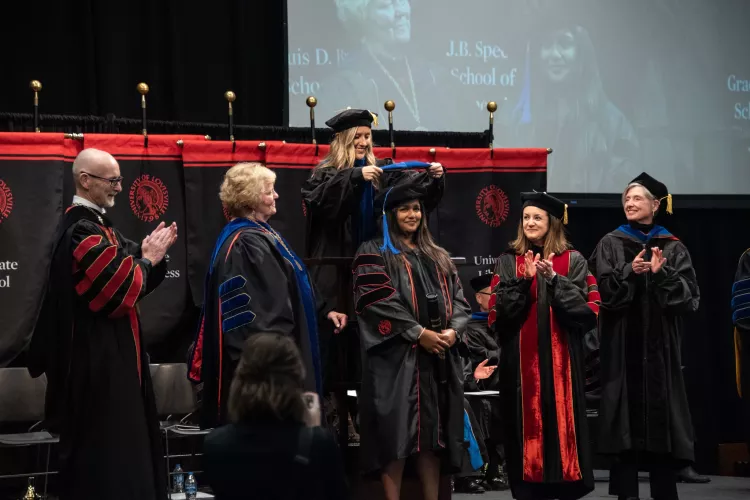Kindred Healthcare Foundation provides funding to renovate, build out UofL health training facilities
October 2, 2024Nursing students and health care workforce trainees at UofL will have new spaces for collaboration and learning thanks to a $950,000 investment by Kindred Healthcare Foundation.
The investment will support the renovation and development of a new dynamic Student Collaboration Lounge in the UofL School of Nursing that will become the heart of the student educational program. The funding also will enable the build out of UofL Trager Institute’s Culinary Medicine Training Kitchen.
“The University of Louisville’s mission includes preparing professionals who will have a significant impact on our community and the commonwealth. Our nurses are frontline heroes and today’s announcement will only improve their experience and training,” said UofL interim President Lori Stewart Gonzalez. “Thank you to our partner Kindred Healthcare for investing in UofL’s School of Nursing and our community’s next great generation of nursing leaders.”
“Louisville’s ability to stand out as the nation’s epicenter for the future of health care innovation relies on a robust and well-trained nursing workforce across the care continuum,” said Kindred Healthcare LLC Chief Executive Officer Ben Breier. “On behalf of the Kindred Foundation, and me personally, we are proud to support the development and training of the next generation of nurse leaders through our investment in UofL’s School of Nursing. Our hope is that we can support well-trained caregivers and positively impact the health and well-being of our entire community.”
The essence of the 3,485-square-foot Student Collaboration Lounge renovation positions UofL nursing students for success by encouraging them to engage with one another, to share ideas and to develop collectively. The new Student Collaboration Lounge features spaces to support collaboration in both open and private places, including an open kitchen area built to resemble a modern café.
The innovative Culinary Medicine Training Kitchen will help train the health care workforce of the future address barriers to healthy eating by increasing students’ and patients’ sense of preparation, confidence and comfort; help erase misconceptions about popular diets; facilitate learning how to make healthy food flavorful with spices and herbs; provide basic cooking techniques and address food access and other equity issues.
By providing an evidence-based curriculum that supports various delicious and healthy ways of eating, participants will be better prepared to explain dietary approaches and offer strategies to support this foundational component of wellness to their patients.



